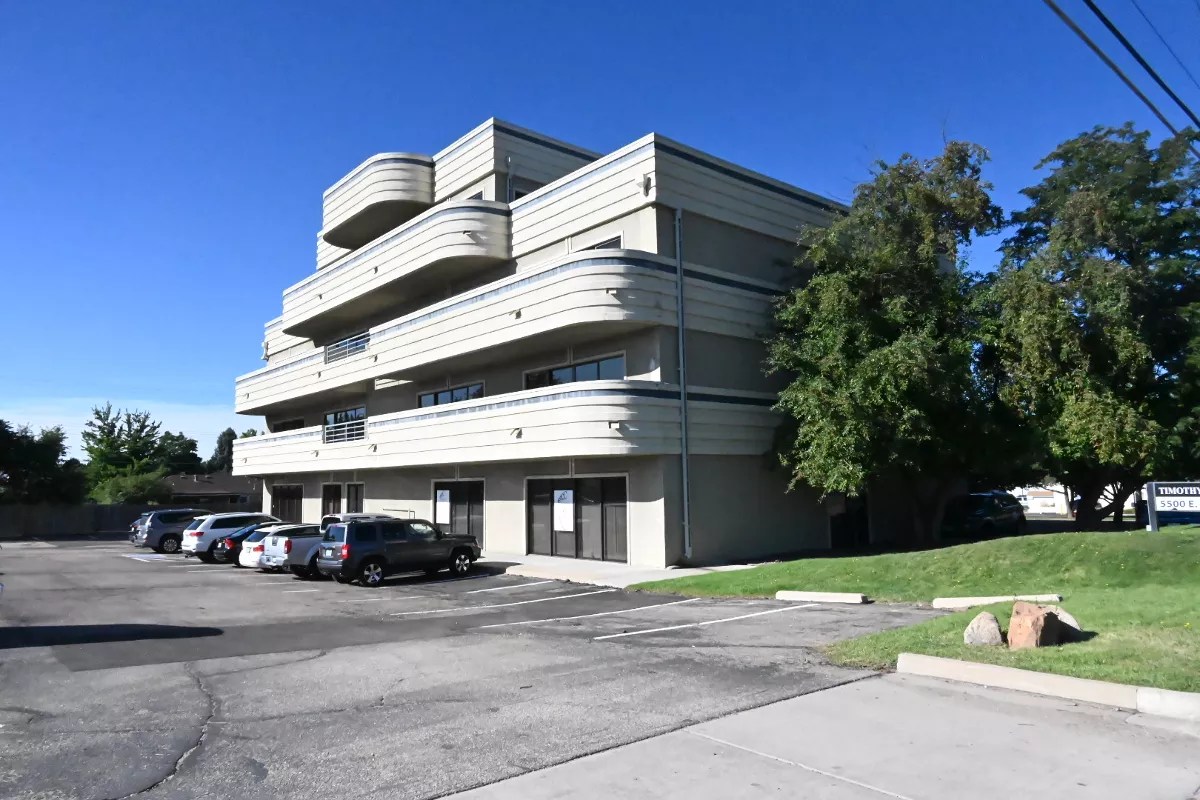
Bennito L. Kelty

Audio By Carbonatix
Setting up micro-communities in Denver has been a learning process for Mayor Mike Johnston and the residents he serves.
Since unveiling his plans in August to install ten micro-communities across the Mile High City, Johnston has learned that not all of the sites will actually work.
Micro-communities – like tiny homes and pallet shelters – are central to Johnston’s House1000 plan to put 1,000 homeless residents into housing before the end of the year. He told neighbors of the area informally known as the Holly Hills Pocket on Thursday, November 2, that his micro-community planned for 5500 East Yale Avenue, near the intersection with Interstate 25, won’t move forward because it failed to meet “the criteria we have identified that include economic viability, projected site yield and consideration of other viable options, as well as community feedback,” according to city officials.
“We have decided to not move forward with the micro-community at 5500 E. Yale Ave. based on a combination of logistical and operational challenges, as well as community feedback,” Johnston told residents in a letter. “Everyone has shown up and both said they recognize the state of emergency, they want to see the problem solved and more importantly, they want [City Council] District 4 to be a part of that solution.”
Residents of the Holly Hills Pocket have learned over the past few months that the mayor is open to compromise and that they can actually have some influence on city plans by banding together, which is why they still plan to carry through with plans to establish a registered neighborhood organization.
“We are thrilled the mayor has removed the Yale site. It had a number of issues,” says Jill Osa, who lives in the area. “We will still pursue getting a registered neighborhood organization, firstly to better our community and to be informed about different initiatives happening in the city.”
Johnston’s decision to cancel the Yale Avenue micro-community comes as the city has already started tearing up pavement and installing fencing around at least four proposed sites. The site already has a three-story structure with businesses located inside.
City officials have confirmed to Westword in the past “that a structure demolition, a process that would take several months to complete, would most likely be necessary at this site,” according to a statement.
Holly Hills neighbors have pointed out that the site also doesn’t meet other criteria that the mayor has announced as being necessary for micro-communities. For one, they note how it is within 1,000 feet of both the Montessori School of Wild Pines and the Calvary Church of Denver, which hosts the K-12 Calvary Apostolic Academy.
Johnston has already publicly announced that he will not build micro-communities within 1,000 feet of schools and only where there is access to public transportation and grocery stores, among other guidelines.
Overland residents near the 2301 South Santa Fe Drive site that’s planned are confused as to why it doesn’t matter that their micro-community is near an elementary school bus stop.
Holly Hills residents have also tried to bring to Johnston’s attention that the Yale Avenue corridor is one of the most dangerous in terms of cars accidents and pedestrian deaths, which is backed up by a 2020 traffic study published by the city. They’ve voiced concerns about the site’s placement near the jurisdictional boundary between the city of Denver and unincorporated Arapahoe County, as well.
Johnston’s decision to cancel the Holly Hills site comes a few weeks after he nixed plans for a proposed micro-community at 1199 Bannock Street in the Golden Triangle.
The Holly Hills and Bannock Street sites have something in common: They were two of the three micro-communities that were planned to go on privately owned land.
The land at 1199 Bannock is owned by Urban Villages, a real estate development group; 5500 East Yale Avenue is owned by Jerrold Glick, the managing partner of the Denver-based investment company the Columbia Group.
Residents have worried whether a conflict of interest exists because Glick donated $10,000 to a super PAC supporting Johnston, and because his son, Fred Glick, is on the Denver Planning Board, which is responsible for advising the mayor and Denver City Council on land use.
When asked to comment on the Holly Hills site, Jerrold Glick told Westword, “I have no idea what the city is going to do at that site.” Urban Villages, similarly, only commented on how it was in “early discussions” about the Bannock Street location.
The other privately owned land that’s slated to host a micro-community is near the city of Glendale, at 1380 South Birch Street, which is owned by Krisana Group – a real estate developer associated with Lexton McDermott, one of the largest for-profit housing developers in Colorado.
In his letter to residents, Johnston wrote that the city is “continuing to pursue the sites that many neighbors have helped us identify” and “working on additional sites in District 4 that meet the criteria and the feedback we received from the community.”
Osa says, “We do look forward to working with the mayor’s office in an effort to help this initiative continue and to find sites that actually meet the criteria. It’s clear that he listened to our concerns and that his process of vetting is actually working.”